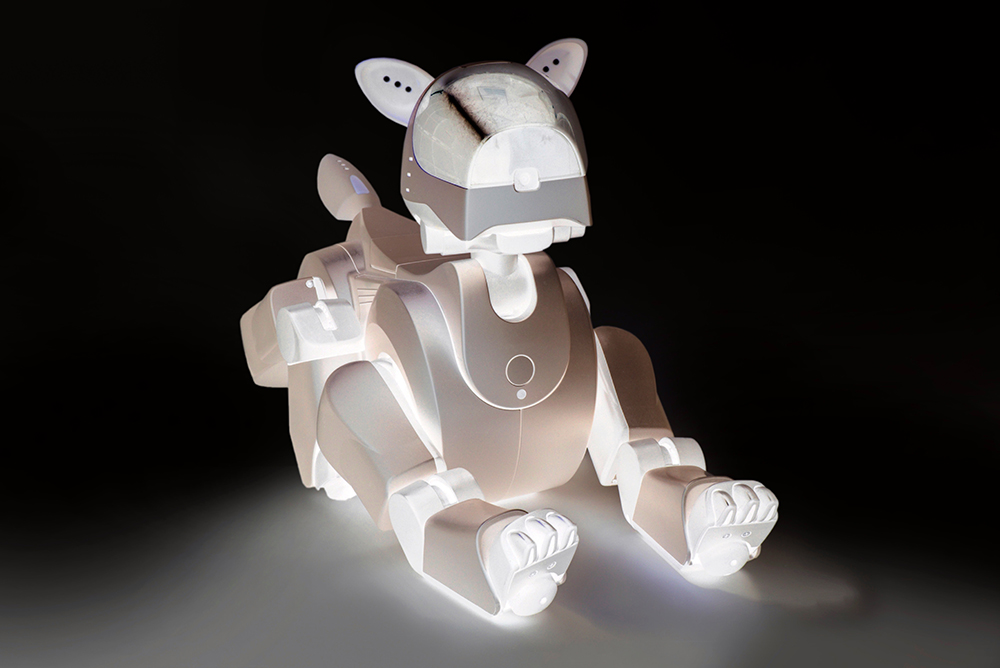Elon Musk presented the idea of a humanoid robot that – according to Manager Magazin – could take on dangerous, repetitive or boring tasks in the future. The Tesla Bot will be about five feet eight inches (just under 1.73 meters) tall, weigh 57 kilograms, and be able to do numerous jobs, from putting screws on cars to picking up groceries at the store – this is what the German magazine reports. It will be equipped with eight cameras and a full self-driving computer, and will use the same tools Tesla uses in its cars (Manager Magazin, 20 August 2021). According to the announcement, the robot will be able to take over physical work. But that’s exactly what service robots are struggling with at the moment, especially humanoid models. The visualization hardly allows any conclusions to be drawn about the capabilities of the prototype, which is to be available as early as 2022. Eyes and mouths could appear on a large display in the head area and mimic abilities could be implemented. When it is turned off – as seen in the video – the robot appears creepy and unapproachable. Arms and feet are unlikely to be suitable for carrying the body in this form. Joints can also only be seen in rudimentary form. Overall, it is unclear why Tesla, of all companies, should close the gaps that are still present at Sony, SoftBank and Boston Dynamics even after many years.
Don’t Scan Our Phones
The U.S. civil liberties organization Electronic Frontier Foundation has launched a petition titled “Don’t Scan Our Phones”. The background is Apple’s plan to search users’ phones for photos that show child abuse or are the result of child abuse. In doing so, the company is going even further than Microsoft, which scours the cloud for such material. On its website, the organization writes: “Apple has abandoned its once-famous commitment to security and privacy. The next version of iOS will contain software that scans users’ photos and messages. Under pressure from U.S. law enforcement, Apple has put a backdoor into their encryption system. Sign our petition and tell Apple to stop its plan to scan our phones. Users need to speak up say this violation of our privacy is wrong.” (Website Electronic Frontier Foundation) More information via act.eff.org/action/tell-apple-don-t-scan-our-phones.
Conversational Agent as Trustworthy Autonomous System
The Dagstuhl seminar “Conversational Agent as Trustworthy Autonomous System (Trust-CA)” will take place from September 19 – 24, 2021. According to the website, Schloss Dagstuhl – Leibniz-Zentrum für Informatik “pursues its mission of furthering world class research in computer science by facilitating communication and interaction between researchers”. Organizers of this event are Asbjørn Følstad (SINTEF – Oslo), Jonathan Grudin (Microsoft – Redmond), Effie Lai-Chong Law (University of Leicester) and Björn Schuller (University of Augsburg). They outline the background as follows: “CA, like many other AI/ML-infused autonomous systems, need to gain the trust of their users in order to be deployed effectively. Nevertheless, in the first place, we need to ensure that such systems are trustworthy. Persuading users to trust a non-trustworthy CA is grossly unethical. Conversely, failing to convince users to trust a trustworthy CA that is beneficial to their wellbeing can be detrimental, given that a lack of trust leads to low adoption or total rejection of a system. A deep understanding of how trust is initially built and evolved in human-human interaction (HHI) can shed light on the trust journey in human-automation interaction (HAI). This calls forth a multidisciplinary analytical framework, which is lacking but much needed for informing the design of trustworthy autonomous systems like CA.” (Website Dagstuhl) Regarding the goal of the workshop, the organizers write: “The overall goal of this Dagstuhl Seminar is to bring together researchers and practitioners, who are currently engaged in diverse communities related to Conversational Agent (CA) to explore the three main challenges on maximising the trustworthiness of and trust in CA as AI/ML-driven autonomous systems – an issue deemed increasingly significant given the widespread uses of CA in every sector of life – and to chart a roadmap for the future research on CA.” (Website Dagstuhl) Oliver Bendel (School of Business FHNW) will talk about his chatbot and voice assistant projects. These emerge since 2013 from machine ethics and social robotics. Further information is available here (photo: Schloss Dagstuhl).
Meet SPACE THEA
SPACE THEA was developd by Martin Spathelf at the School of Business FHNW from April to August 2021. The client and supervisor was Prof. Dr. Oliver Bendel. The voice assistant is supposed to show empathy and emotions towards astronauts on a Mars flight. Technically, it is based on Google Assistant and Dialogflow. The programmer chose a female voice with Canadian English. SPACE THEA’s personality includes functional and emotional intelligence, honesty, and creativity. She follows a moral principle: to maximize the benefit of the passengers of the spacecraft. The prototype was implemented for the following scenarios: conduct general conversations; help the user find a light switch; assist the astronaut when a thruster fails; greet and cheer up in the morning; fend off an insult for no reason; stand by a lonely astronaut; learn about the voice assistant. A video on the latter scenario is available here. Oliver Bendel has been researching conversational agents for 20 years. With his teams, he has developed 20 concepts and artifacts of machine ethics and social robotics since 2012.
From AIBO to CyberDog
Xiaomi has unveiled CyberDog, a four-legged robot that could be a competitor to Sony’s AIBO. According to the Chinese company, it is calibrated with servo motors that translates into great speed, agility, and a wide range of motion. It is able to conduct complicated actions such as backflips. “To fully model biological organisms, CyberDog is equipped with 11 high-precision sensors which provide instant feedback to guide its movements. This includes touch sensors, cameras, ultrasonic sensors, GPS modules, and more, giving the CyberDog enhanced capability to sense, analyze, and interact with its environment.” (Mi Blog, 10 August 2021) Unlike AIBO, CyberDog looks rather frightening. This is because it does not have an actual head. In this it is comparable to Spot from Boston Dynamics. Nevertheless, it is intended to function as a pet substitute. “To add to its pet-like nature, users can use voice assistants to command and control CyberDog by setting a wake word, or simply use its accompanying remote and smartphone app. CyberDog can be called on for the most unique tasks, and the ways in which it can be interacted with holds unforetold possibilities.” (Mi Blog, 10 August 2021) The future will show whether users want to become friends with CyberDog.




